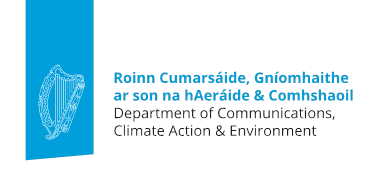Mr. Denis Naughten, T.D., Minister for Communications, Climate Action and Environment, on Monday, 4 September 2017, welcomed the Irish Business Against Litter (IBAL) latest survey results.
Minister Naughten welcomed the fact that these results are the best ever to emerge from the IBAL Survey with 80% of towns and cities in Ireland found by to be as clean as, or cleaner than, their European counterparts. 16 Towns were cleaner than European norms.
He congratulated the people and Councils responsible for these positive results nationwide and, in particular, the County Councils, Community Groups and individuals in Tullamore, Leixlip andRoscommon Town, for the top ranking achieved by them. The Minister also acknowledged the great improvement in the environs of Dublin Airport over the past few years from being a litter blackspot.
While the Minister was pleased with the overall results, and particularly the fact that no area was brandished a “litter blackspot” in this survey, he is concerned still about areas mentioned with particular litter issues, including Galvone, Limerick City, Dublin’s North Inner City and Cork City North. While the Minister is pleased to see that the respective Councils have evidently taken steps to improve these areas, the Minister again urged them to increase their efforts.
Minister Naughten stated that:
“As well as the focussed, independent IBAL survey, my Department commissions a comprehensive annual National Litter Pollution Monitoring Survey (NLPMS). Over the past decade, the NLPMS has shown a continuous improvement in the level of litter in Ireland. However, I was concerned to see that the 2016 NLPMS results demonstrated a slight dis-improvement. I have taken a number of steps to address this, particularly by significantly increasing funding for National Spring Clean, Anti-Litter and Graffiti awareness grants and the Protecting Upland and Rural Environments (PURE) initiative for 2017.”
The Minister pointed out that he was particularly concerned about the levels of fly-tipping and illegal dumping and to address this had provided resources for a new enforcement initiative. He said: “The initiative involves key stakeholders including the Waste Enforcement Regional Lead Authorities, local authorities, agencies and voluntary bodies, and I have made a total of €1.3m available for the scheme.
However, while my Department will not stint in supporting these measures, we must all recognise, as individuals, that ultimately it is a matter for each of us to take personal responsibility by disposing of waste and litter in an appropriate manner, in order to preserve and protect the environment for everyone to enjoy.”







